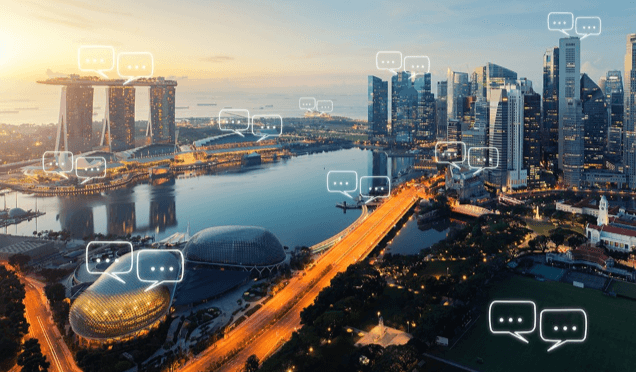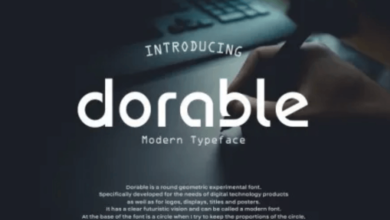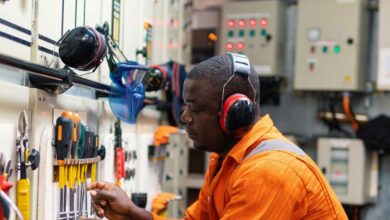What challenges and opportunities does the Internet of Things (IoT) present for urban development?

Introduction
Urban development is undergoing a transformation, driven largely by the rapid advancement of the Internet of Things (IoT). IoT, a network of interconnected devices that communicate and exchange data, presents both significant challenges and remarkable opportunities for cities worldwide. As urban areas strive to become smarter, more efficient, and more sustainable, understanding the impact of IoT is crucial for planners, policymakers, and citizens alike. This article explores the multifaceted role of IoT in urban development, highlighting the key challenges and opportunities it presents.
Understanding the Internet of Things (IoT)
The Internet of Things refers to a vast network of physical devices connected via the internet, capable of collecting and sharing data. These devices range from simple sensors to complex systems embedded in various urban infrastructures. IoT enables real-time data collection and analysis, which can be harnessed to optimize various aspects of urban life.
The Role of IoT in Smart Cities
Enhancing Urban Infrastructure
IoT technology is pivotal in developing smart cities, where interconnected devices can monitor and manage urban infrastructure more efficiently. Sensors embedded in roads, bridges, and buildings can detect wear and tear, enabling proactive maintenance and reducing the risk of catastrophic failures.
Improving Public Services
IoT can revolutionize public services, from waste management to emergency response. Smart bins equipped with sensors can signal when they need emptying, optimizing waste collection routes. Similarly, IoT devices can improve emergency services by providing real-time data on incidents, helping dispatch teams more effectively.
Traffic Management and Transportation
Smart traffic lights, connected vehicles, and real-time traffic monitoring are some of the ways IoT can alleviate urban congestion. By analyzing traffic patterns, cities can adjust signal timings and provide real-time updates to drivers, reducing traffic jams and improving overall mobility.
Energy Efficiency and Sustainability
IoT facilitates energy efficiency in urban areas by monitoring and controlling energy consumption in real-time. Smart grids, for instance, can balance energy supply and demand more effectively, integrating renewable energy sources and reducing overall carbon footprints.
Challenges of IoT in Urban Development
Data Privacy and Security
The proliferation of IoT devices in urban areas raises significant concerns about data privacy and security. With vast amounts of data being collected and transmitted, there is a heightened risk of cyberattacks and unauthorized access to sensitive information. Ensuring robust cybersecurity measures and protecting citizens’ privacy is a major challenge.
Interoperability Issues
For IoT to function seamlessly, different devices and systems must be able to communicate and work together. However, the lack of standardized protocols and compatibility issues can hinder the integration of IoT technologies across various urban infrastructures.
High Implementation Costs
Implementing IoT solutions in urban areas requires substantial investment. The cost of installing sensors, upgrading infrastructure, and maintaining IoT systems can be prohibitive for many cities, particularly those with limited budgets.
Ethical and Social Concerns
The deployment of IoT in urban areas raises ethical and social questions, such as the potential for increased surveillance and the implications for individual freedoms. Balancing the benefits of IoT with respect for citizens’ rights and freedoms is a complex issue that requires careful consideration.
Opportunities of IoT in Urban Development
Enhanced Quality of Life
IoT has the potential to significantly improve the quality of life for urban residents. Smart healthcare systems can provide remote monitoring and assistance to patients, while smart homes can offer greater convenience and energy efficiency.
Economic Growth and Innovation
The integration of IoT in urban development can spur economic growth by attracting tech companies and fostering innovation. Startups and established firms alike can leverage IoT technologies to develop new products and services, driving job creation and economic development.
Environmental Benefits
IoT can contribute to more sustainable urban environments by enabling better resource management. Smart water management systems can reduce wastage, while air quality monitoring can help cities address pollution and improve public health.
Improved Urban Planning
The data collected by IoT devices can provide valuable insights for urban planning. By analyzing patterns and trends, city planners can make informed decisions about infrastructure development, zoning, and resource allocation, leading to more efficient and sustainable cities.
Case Studies of IoT in Urban Development
Barcelona: A Pioneer in Smart City Technology
Barcelona is often cited as a leading example of a smart city, with extensive IoT deployments across various sectors. The city uses IoT to manage street lighting, parking, and waste collection, resulting in significant cost savings and improved services for residents.
Singapore: Integrating IoT for Urban Efficiency
Singapore has embraced IoT to enhance urban efficiency and sustainability. The city-state uses IoT for traffic management, environmental monitoring, and smart public housing, positioning itself as a global leader in smart city innovation.
Amsterdam: Smart Mobility Solutions
Amsterdam has implemented various IoT-driven solutions to improve mobility and reduce congestion. The city’s smart traffic management system uses real-time data to optimize traffic flow, while connected bike-sharing schemes promote sustainable transportation options.
The Future of IoT in Urban Development
Advancements in AI and Machine Learning
The integration of artificial intelligence (AI) and machine learning with IoT devices is expected to drive further advancements in urban development. These technologies can enhance data analysis and decision-making processes, leading to more intelligent and responsive urban systems.
Increased Adoption of 5G Technology
The rollout of 5G networks will significantly enhance the capabilities of IoT devices, providing faster data transmission and more reliable connections. This will enable more sophisticated and widespread IoT applications in urban areas.
Citizen Participation and Engagement
As IoT technologies become more prevalent, there will be greater opportunities for citizen participation and engagement in urban development. IoT can facilitate more interactive and responsive governance, allowing residents to contribute to decision-making processes and monitor the performance of public services.
Collaboration and Standardization
To overcome interoperability challenges, there will be a growing emphasis on collaboration and standardization in IoT development. Governments, industry stakeholders, and international organizations will need to work together to establish common protocols and frameworks that enable seamless integration of IoT technologies.
FAQs
What are the main benefits of IoT in urban development? IoT offers numerous benefits for urban development, including improved infrastructure management, enhanced public services, better traffic and transportation systems, and increased energy efficiency and sustainability.
What are the primary challenges of implementing IoT in cities? The main challenges include data privacy and security concerns, interoperability issues, high implementation costs, and ethical and social implications related to increased surveillance.
How can IoT improve traffic management in urban areas? IoT can improve traffic management through smart traffic lights, connected vehicles, and real-time traffic monitoring. These technologies help optimize traffic flow, reduce congestion, and provide real-time updates to drivers.
What role does IoT play in promoting sustainability in cities? IoT promotes sustainability by enabling efficient resource management, such as smart grids for energy, smart water management systems, and air quality monitoring, which help reduce environmental impact and improve public health.
How does IoT impact urban planning? IoT provides valuable data for urban planning, helping city planners make informed decisions about infrastructure development, zoning, and resource allocation. This leads to more efficient and sustainable urban environments.
What are some leading examples of cities using IoT for urban development? Leading examples include Barcelona, Singapore, and Amsterdam, which have implemented various IoT-driven solutions to enhance urban efficiency, sustainability, and quality of life for residents.
Conclusion
The Internet of Things (IoT) is transforming urban development, presenting both challenges and opportunities. While data privacy, security, and implementation costs are significant concerns, the potential benefits of IoT in enhancing urban infrastructure, public services, and sustainability are immense. By addressing these challenges and leveraging IoT technologies effectively, cities can create smarter, more efficient, and more livable environments for their residents. The future of urban development lies in harnessing the power of IoT to build the cities of tomorrow.





